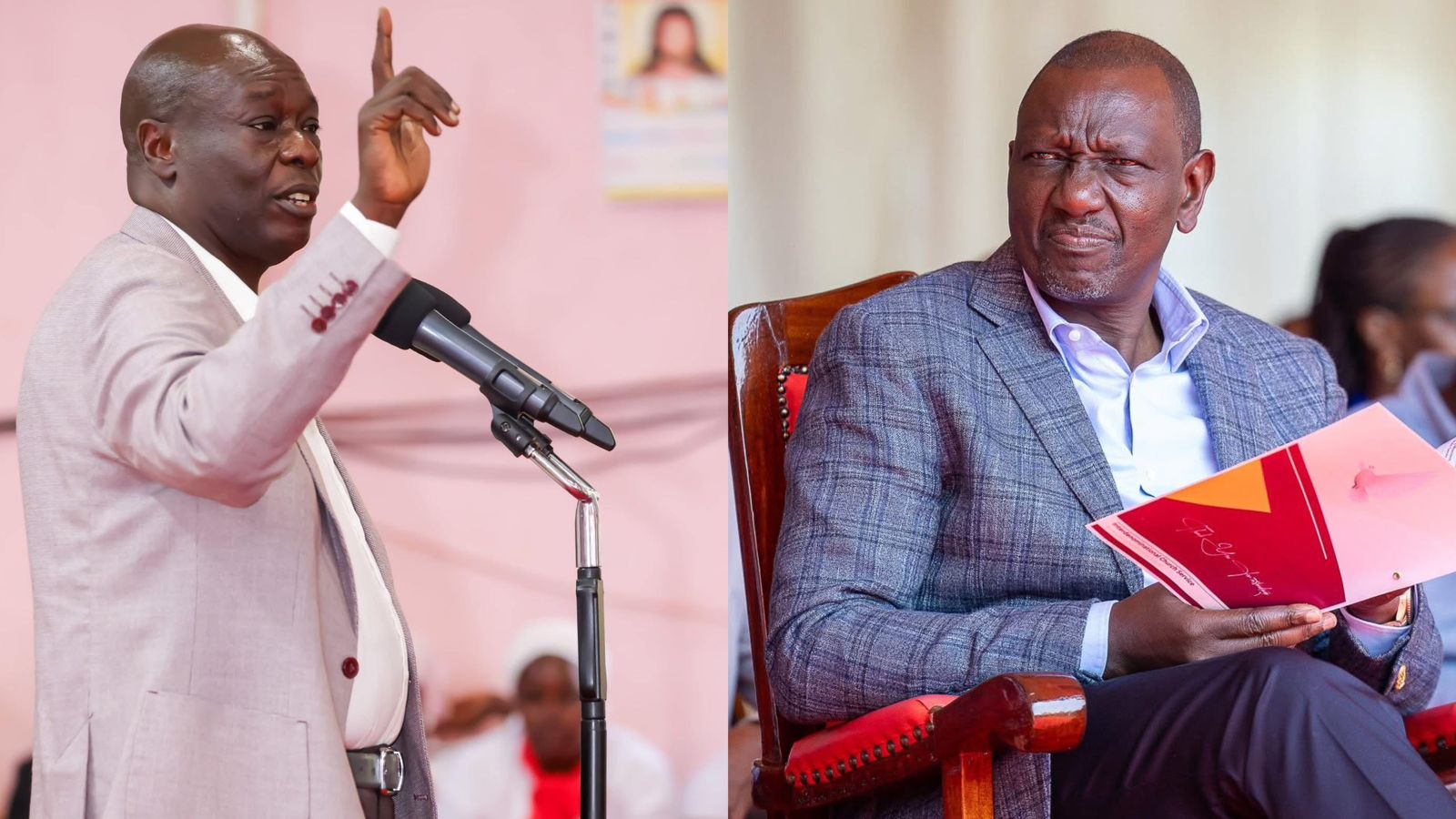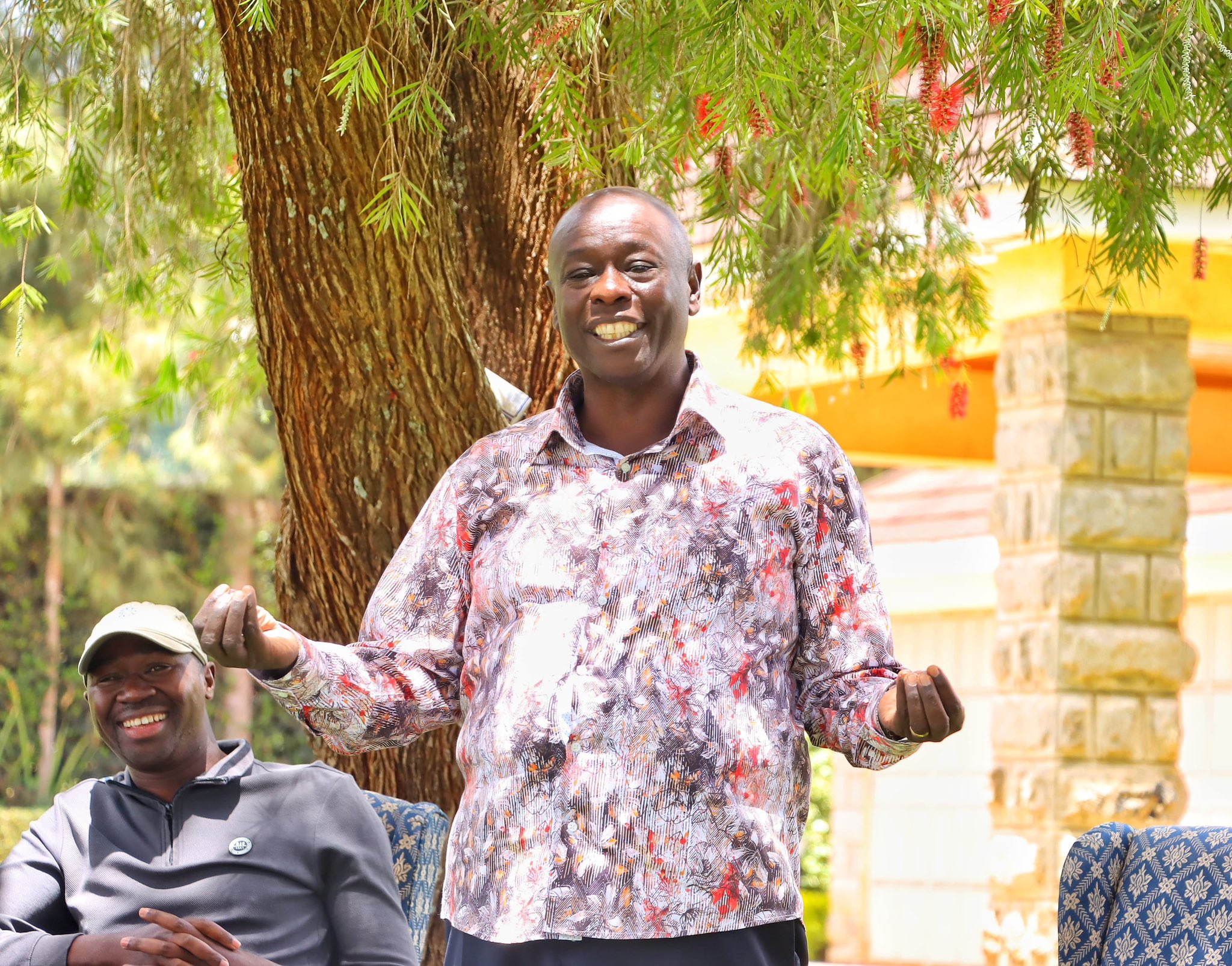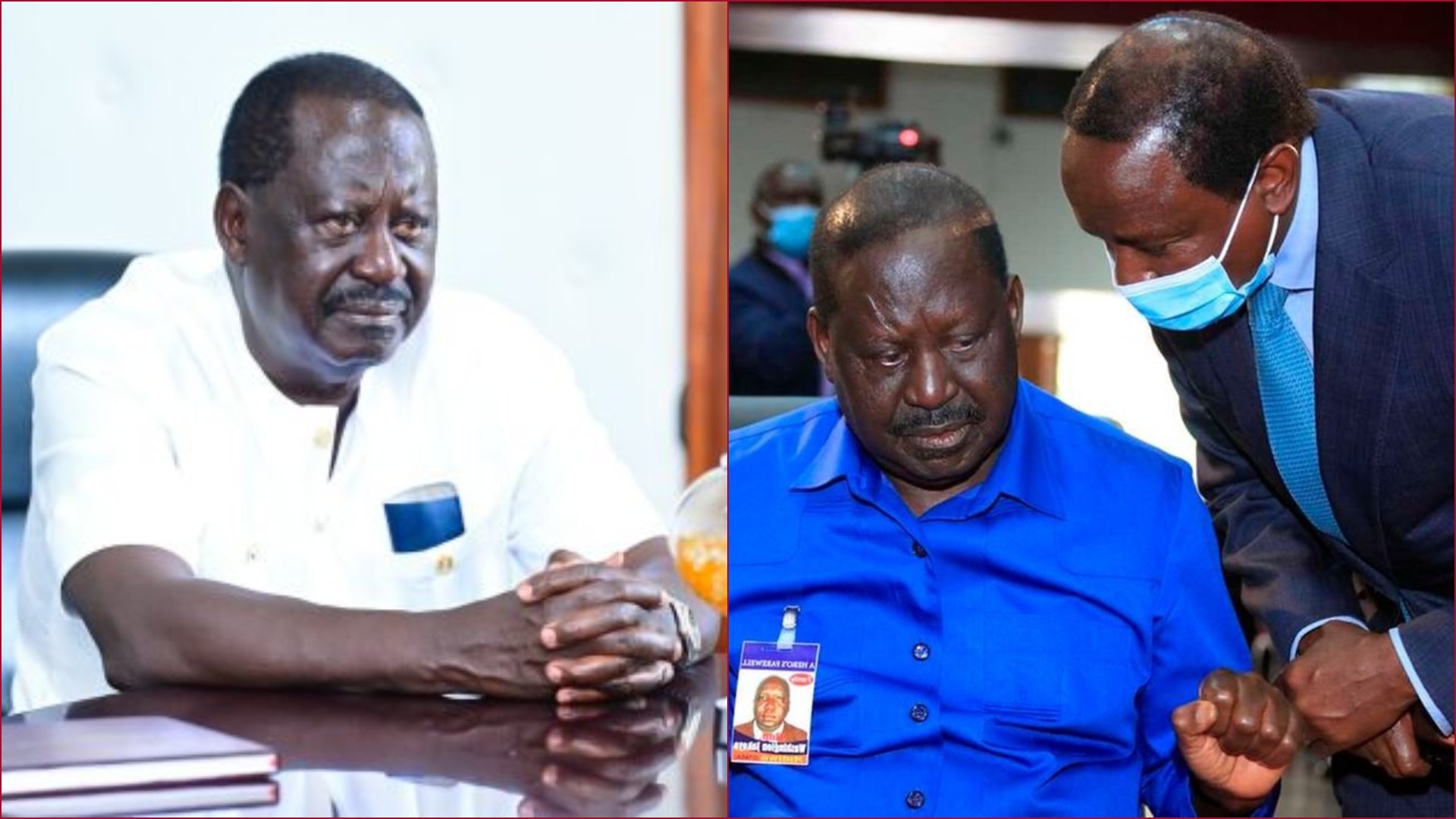Former Deputy President Rigathi Gachagua has pushed back against President William Ruto’s criticism that the opposition is fixated on the 'one-term' slogan, saying it reflects the people’s frustrations rather than political strategy.
Ruto has recently accused the opposition of lacking a development agenda and focusing solely on removing him from power.
President Ruto has repeatedly argued that his rivals have no credible plan to steer the country forward.
In one of his recent addresses, Ruto said: “Those other people (opposition) have no plan, and we cannot hand over to people who have no plan. Their plan is Ruto Must Go. How will that help?"
"They have no idea how the youth will get employment, how agriculture will progress, or how children will access education," he argued.
Read More
Speaking during an interview on Sunday, October 5, Gachagua responded to Ruto, arguing that their 'one-term' message is driven by the public, not politicians.
“I have heard William Ruto complaining that we are only talking about one term; indeed, it is not our wish to talk about one term throughout; it is the people who are forcing us; they don’t want to listen to anything else,” Gachagua said.
According to the DCP party leader, the enthusiasm surrounding the 'one-term' slogan has made it nearly impossible to discuss anything else at public gatherings.
“The other day I was in Nyandarua in a place called Miharati. People I have gone to meet before asked me to talk about potatoes, storage facilities, roads, and water. The last time I was there, I tried to talk about those issues, they were not interested. They said, Tell us about one-term,” he explained.

Gachagua argued that the phrase reflects widespread discontent with the Kenya Kwanza administration, noting that many Kenyans view President Ruto as the root of their problems.
He claimed that during public gatherings, citizens have shown little interest in discussing anything beyond the 'one-term' narrative, insisting that their impatience stems from the belief that Ruto is responsible for the challenges they face.
According to Gachagua, when he coined the slogan, he was merely summarising what Kenyans across different regions were expressing.

As a student of literature, he added, he has always had an ear for language and sought to capture public sentiment in one phrase. He noted that the slogan quickly spread like wildfire because it resonated with many Kenyans who felt disillusioned.
Gachagua has increasingly positioned himself as a vocal critic of the government, using the 'wantam' slogan as a rallying cry for accountability and political change.
The 'one-term' narrative has also drawn criticism from leaders allied to President Ruto, including National Assembly Speaker Moses Wetang’ula, who argued that the opposition should focus on presenting concrete agendas.
“You ask the opposition for their plan; all they say is ‘Ruto must go’. That is not policy. That is noise. Kenya cannot be governed by anger and bitterness,” Wetang’ula said.
As the debate over the 'one-term' narrative intensifies, it remains to be seen whether it will evolve into a fully-fledged political movement or remain a rallying slogan as the country prepares for the 2027 general election.


-1758009840.jpg)


